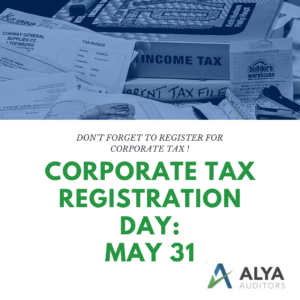
Is it mandatory to register for corporate tax in UAE?
Is it mandatory to register for corporate tax in UAE? All taxable persons are required to register for UAE Corporate Tax and obtain a Corporate Tax
Home » Learning from ten common bookkeeping mistakes
Bookkeeping is the platform for maintaining the track of financials, and it act an integral part of the accounting process. The accounting process includes purchases, sales, receipts, and payments by an individual or an organization. In this era of business revolution, it is necessary to maintain systematic bookkeeping structures. From recording to analysis, it act as a tool for management to anticipate business performance.
Modern world often uses the term bookstagrams and in accounting this bookstagrams are maintained by highly qualified bookkeepers. Without bookkeepers, companies would not be aware of their current financial position, as well as the transactions that occur within the company and liquidity of the company. So for any company a key element in starting and growing a business, is bookkeeping and accounting. Bookkeeping presents the past financial performance of your company along with future considerations for better understanding. The bookkeeping cycle starts from the 1st day of the month to the last day of the month, and repeats every month. This goes on for 12 months until the end of the financial year when all the data is sent to a chartered accountant for internal audit.
Here are the 10 most common bookkeeping mistakes you need to avoid:
Improper or poor receipt and record keeping is common for businesses. It is easy to lose receipts or forget about those small expenses that seem insignificant. Maintaining accurate records on a monthly basis and with a proper filing system can save you time and money on your income taxes. It can also provide the necessary documentation in the event that you are audited by the IRS. In case of a potential audit, accurate records of income and expenses could end ups saving you thousands of tax dollars.
If you or someone you have hired does not have the knowledge of formal bookkeeping practices, this can become a problem. Accurately tracking income and expenses in the correct categories ensures proper measurement of profitability. Knowing the different tax treatments of each income and expense category can result in significant tax savings, as well.
Not having separate bank accounts for personal and business activities can become an issue. If you are audited, you may need to provide complete records of business-related activities that are separate from your personal expenses. Make sure that your bank statements are properly reconciled every month. This will help to minimize errors and identify potential issues.
We live in a world of heavy dependence on technology where issues can suddenly arise. There is always a chance that something could happen to your data, and you need to be prepared. It is important for every business to back up their data to avoid potential losses.
With many businesses, not reporting sales tax and not accounting for it is a common error in bookkeeping. Oversight in collection and reporting of sales taxes can result in significant fines and penalties. Alternatively, incorrect data entry may result in a higher total sales amount and overstated sales taxes due.
Businesses often have a combination of both employees and independent contractors. Make sure these are properly classified to avoid misfiling and overpayment of taxes.
Business owners often operate with a small amount of petty cash, but they have little or no knowledge of how to track it. Be sure to set up a system which allows you to track the cash kept on hand for the business and what it is being used for. Buying a petty cash lock box from your local office depot and obtaining receipts for all disbursements is a great way to start.ion.
It is important to have strong communications between the bookkeeper and company employees. Keep your bookkeeper involved and integrated with what’s going on inside the business. This helps the bookkeeper to create financial statements which reflect the true operational needs of your business.
Many small business owners pay for expenses out of their personal funds. As time passes, there is increased risk that these expenses get overlooked. Failure to account for these reimbursable expenses can result in lost money as well as lost tax deductions. Create a policy to make it easy for the company to easily and consistently track and record reimbursable expenses.
Many business owners try to do bookkeeping themselves or do not have the professional help they need. Although we all know that time is money, many business owners do not put enough VALUE on their time. How you value your time is extremely important to your business. Leave the tedious and time-consuming task of bookkeeping to the professionals. A bookkeeper will know what to record, how to record it, and most importantly, the accounting changes that affect a business on an ongoing basis. This alone can not only save you time, but it also free up more of your time so you can focus on growth and taking your business to the next level.
Now that you have read through the 10 most common bookkeeping mistakes, take a look at your business and determine whether any of these apply to you. Now is the time to make some easy changes to upgrade your bookkeeping system and turn that mundane task of bookkeeping into your secret weapon for business management and success!
If you are interested in a prosperous future from a personal and/or business standpoint, reach out to our team of dedicated professionals. When considering accounting, audits, tax or business consulting, one call can make all the difference. Click here to get started – we look forward to working with you!

Is it mandatory to register for corporate tax in UAE? All taxable persons are required to register for UAE Corporate Tax and obtain a Corporate Tax

Scope of UAE Corporate Tax: What You Need to Know The upcoming UAE Corporate Tax (CT) will impact a broad spectrum of businesses and individuals.

Navigating Crypto Auditing in the UAE: Ensuring Compliance and Security in the Digital Age Crypto auditing in the UAE is becoming increasingly critical as the

Get Note on the Crucial Documents for UAE Corporate Tax Registration Transitioning seamlessly into compliance, businesses and qualifying free zone persons in the UAE are

Top Audit firms in Dubai, UAE Alya Auditors Dubai stands as one of the Top 10 Accounting and Audit Firms in Dubai, UAE. In the
Truly, let us know what service you are looking for and hence we can get back to you with more details.
Silver Tower, Business Bay. PO Box: 41102, Dubai, UAE.
Sharjah Airport Free Zone PO Box: 120403 Sharjah, UAE.
+971 48769377
+971 52 9750690 , +971 50 522 1035
Mon – Fri : 8:30 AM – 6 PM
Saturday – 9 AM – 5 PM
Sunday – Closed
© Alya Auditors 2022 All Rights Reserved